Construction
accounting
involves
specialized
financial
management
techniques
tailored
for
the
construction
industry.
These
techniques
focus
on
tracking
project
costs,
revenues,
and
overall
financial
performance.
One
of
the
main
challenges
faced
by
construction
companies
is
effectively
managing
both
their
finances
and
their
projects.
This
difficulty
arises
from
the
complexity
of
coordinating
among
multiple
stakeholders
while
complying
with
regulations.
A
key
benefit
of
a
construction
accounting
software
is
its
integration
with
project
management
tools,
which
helps
ensure
compliance
with
industry
regulations.
These
solutions
enhance
efficiency
and
accuracy
and
provide
real-time
financial
insights.
We
have
researched
and
listed
the
best
construction
accounting
software
to
help
businesses
find
the
right
solution.
Our
focus
was
on
features
such
as
industry
focus,
integration
capabilities
and
user-friendliness.
-
Premier
–
All-in-One
to
Gain
Financial
Visibility -
Procore
–
To
Manage
Invoices
and
Payments -
Foundation
–
Integrated
Payroll -
Buildertrend
–
Best
to
Manage
Cash
Flow
and
Budgets -
CMiC
–
For
Small
Builders
and
Contractors -
Intuit
Quickbooks
–
Best
for
Value -
FreshBooks
–
For
Small
Businesses -
Deltek
–
Inbuilt
Job
Costing,
Payroll
and
Project
Management -
Sage
Construction
–
Market
Leader -
Acumatica
–
AI-powered
Cloud
ERP -
Show
less
You
can
trust
Geekflare
Imagine
the
satisfaction
of
finding
just
what
you
needed.
We
understand
that
feeling,
too,
so
we
go
to
great
lengths
to
evaluate
freemium,
subscribe
to
the
premium
plan
if
required,
have
a
cup
of
coffee,
and
test
the
products
to
provide
unbiased
reviews!
While
we
may
earn
affiliate
commissions,
our
primary
focus
remains
steadfast:
delivering
unbiased
editorial
insights,
and
in-depth
reviews.
See
how
we
test.
-
Industry
FocusConstruction-specific
-
Integration
CapabilitiesExtensive,
ERP
systems -
User-Friendliness
Moderate
learning
curve
Founded
with
a
commitment
to
revolutionizing
construction
management,
Premier
is
trusted
by
thousands
of
companies
worldwide,
ensuring
they
stay
ahead
in
the
competitive
construction
industry.
Premier
offers
an
all-in-one
platform
that
guarantees
financial
control,
operational
excellence,
and
seamless
collaboration,
connecting
every
process
and
stakeholder
within
a
project.
Their
cloud-based
solution
combines
sophistication
with
simplicity,
offering
predictive
intelligence,
customizable
dashboards,
AI-driven
automation,
and
support
for
unlimited
entities.
-
Automates
repetitive
tasks
with
AI
to
focus
on
driving
new
business
value. -
Offers
tools
for
managing
and
sharing
construction
drawings. -
Handles
unlimited
entities
and
projects
with
streamlined
financial
grouping
and
automated
inter-company
transactions. -
AI-powered
modules
provide
predictive,
intelligent
reporting
and
forecast
projects
to
enhance
decision-making
agility. -
Offers
a
search
tool
that
scans
through
the
entire
database
and
documents
instantly,
providing
precise
and
quick
access
to
needed
information. -
Extracts
and
organizes
key
data
from
contracts,
invoices,
and
receipts,
reducing
manual
entry
and
the
potential
for
errors.
-
Simplifies
bank
reconciliation
by
automatically
recognizing
and
matching
transactions -
30-day
money-back
guarantee -
New
features
published
every
week -
Generates
and
routes
accounts
payable
invoices
for
approval,
modification,
or
rejection,
enhancing
the
efficiency
and
accuracy
of
subcontractor
payment
cycles.
-
The
constant
release
of
new
features
can
represent
a
long
learning
curve
for
users -
Expensive
for
small
to
medium-sized
businesses,
both
in
terms
of
initial
purchase
and
ongoing
support
costs.
Founded
in
2002,
Procore
has
over
20
years
experience
in
innovation
to
improve
the
lives
of
everyone
in
the
construction
industry.
By
providing
a
global
platform
that
links
the
entire
industry,
it
aims
to
revolutionize
how
construction
projects
are
managed
and
executed.
Designed
by
experts
who
are
passionate
about
construction,
the
platform
caters
to
the
specific
needs
of
owners,
general
contractors,
specialty
contractors,
and
public
agencies.
It
helps
manage
risk,
secure
data,
and
drive
productivity
across
all
project
phases.
Trusted
by
users
in
over
150
countries,
it
connects
every
stakeholder
in
the
construction
process,
ensuring
projects
are
completed
efficiently
and
safely.
-
Applies
uniform
processes
across
a
portfolio
of
projects
to
reduce
variability
and
increase
efficiency. -
Centralizes
communications
between
office
staff,
field
teams,
and
trade
partners. -
Utilizes
mobile
tools
for
faster
approval
processes
and
accurate
on-site
communication. -
Equipped
with
real-time
tracking
of
governance
and
compliance. -
Facilitating
on-the-go
approvals
and
updates
with
their
intuitive
mobile
interface.
-
Integrates
estimating,
accounting,
and
project
management
solutions. -
Centralizes
financial
information
and
processes. -
Modern
UI/UX
Design.
-
More
tailored
for
larger
projects -
High
price
if
you
do
not
have
a
regular
flow
of
projects -
Difficult
to
integrate
if
working
with
traditional
vendors
-
Industry
FocusConstruction-specific
-
Integration
CapabilitiesProject
Management,
Payroll -
User-Friendliness
Complex
Features,
Moderate
Learning
Curve
Foundation
has
been
a
cornerstone
of
the
construction
accounting
industry
since
1985.
Fred
Ode
developed
the
original
version
of
his
construction
accounting
software,
which
has
evolved
significantly
over
the
decades.
Their
software
is
known
for
its
user-centered
approach,
responsive
support,
and
service,
helping
over
43,000
construction
professionals
manage
and
enhance
their
business
operations
effectively.
Foundation
has
continually
embraced
innovation,
ensuring
that
its
offerings
keep
pace
with
technological
advancements
while
maintaining
a
strong
focus
on
quality
service
and
support.
Foundation
includes
a
payroll
and
subcontracting
module
built-in
to
help
construction
companies
manage
their
permanent
and
contractual
staff.
-
Automated
tracking
of
tax
liabilities
and
support
for
printing
or
e-filing
1099s. -
Alerts
for
approaching-due
or
past-due
accounts
payable
invoices,
ensuring
timely
payments. -
Flexible
invoice
payment
options,
allowing
selections
based
on
due
dates,
discounts,
and
holds. -
Simplified
accounts
payable
invoice
entry
with
automatic
error
checking. -
Custom
report
creation
with
DataGenie™
for
tailored
financial
analysis
and
job
costing. -
CPA
Audit
and
Review
Software
that
provides
a
consolidated
view
of
financials
and
reports
for
external
CPAs. -
Detailed
vacation
accrual
and
usage
information
available
to
employees
through
an
intuitive
eAccess
dashboard.
With
nearly
two
decades
in
the
industry,
Buildertrend’s
mission
is
to
bring
order
and
efficiency
to
the
construction
process.
With
over
one
million
construction
professionals
served,
over
two
million
projects
completed,
and
1.5
million
mobile
app
downloads
across
100+
countries,
Buildertrend
is
helping
contractors
maintain
control
and
run
their
companies
more
effectively.
Founded
in
2006
by
Dan
Houghton,
Steve
Dugger,
and
Jeff
Dugger,
the
company
began
with
a
small
team
in
Omaha,
Nebraska.
Despite
the
challenges
of
the
Great
Recession,
the
company
expanded
rapidly,
growing
by
80%
in
2008
and
venturing
into
the
remodeling
industry.
By
2011,
the
company
had
begun
building
a
strong
global
customer
base,
particularly
in
New
Zealand
and
Australia.
-
Integrates
financial
management
with
features
like
mobile
banking
and
1%
cashback
on
company
spend. -
Utilizes
field
data
to
forecast
critical
costs
and
manage
budget
risks
effectively. -
Distributes
individual
virtual
and
physical
cards
to
employees,
eliminating
shared
company
card
issues. -
Offers
virtual
and
physical
cards
for
employees
with
custom
spending
limits
tailored
to
their
roles. -
Eliminates
the
need
for
manual
check
writing
or
delivery,
facilitating
immediate
online
fund
deposits. -
Keeps
bid
information
connected
and
updated
in
real-time
with
other
Buildertrend
features. -
Provides
visibility
into
the
financial
health
of
every
job,
reducing
end-of-year
accounting
stress.
-
Provides
a
digital
wallet -
Includes
a
checking
account
for
managing
company
expenses
and
earning
cashback
rewards. -
Enables
quicker
transactions
with
online
payment
options
for
clients
and
subcontractors.
-
Industry
FocusConstruction
Financials
Focused -
Integration
CapabilitiesPayroll,
HCM,
Project
Management -
User-Friendliness
Moderate,
Steep
Learning
Curve
Serving
one-quarter
of
the
construction
firms
on
ENR’s
Top
400
Contractors
list,
CMiC
handles
over
$100
billion
in
construction
revenue
annually,
making
it
the
preferred
choice
for
a
wide
range
of
construction
firms.
This
includes
general
and
specialty
contractors,
heavy/highway
contractors,
and
project
owners.
In
North
America,
CMiC
enjoys
a
25%
market
share
among
the
top
400
contractors,
solidifying
its
position
as
a
leading
provider
of
construction
software
solutions.
The
platform’s
scalability
and
adaptability
make
it
a
long-term
partner
for
contractors
and
small
builders,
offering
flexible
deployment
options,
including
on-premise,
private
cloud,
or
multi-tenant
cloud
environments.
-
Eliminates
duplicate
entries
by
automatically
updating
both
general
ledger
and
job
costing. -
Integrates
all
subcontractor
activities
into
the
workflow,
making
them
an
extension
of
the
team. -
Tracks
fleet,
compliance,
and
fixed
assets
while
managing
depreciation
for
resource
planning. -
Operates
on
a
single
database
platform
to
enhance
data
integrity
and
accessibility. -
Connects
financial
management
with
field
operations
for
real-time
financial
visibility. -
Streamlined
employee
self-service
portal
for
efficient
management
of
time
and
crew
activities. -
Enhanced
payroll
processing
with
automated
tax
filing
and
payroll
deductions
to
ensure
compliance
and
accuracy.
-
Easy
to
navigate
for
beginners -
Constant
updates
on
features -
Centralizes
control
with
a
unified
interface
for
easier
system
management
and
troubleshooting.
-
Limited
custom
reporting
options -
Long
implementation
process -
Distributed
settings
management
-
Industry
FocusGeneral
Business,
Small
Construction -
Integration
Capabilities750+
Popular
Business
Apps -
User-Friendliness
Beginner-Friendly
Launched
by
Intuit,
a
leader
in
personal
finance
software,
QuickBooks
was
created
to
meet
the
needs
of
small
businesses
that
required
an
affordable
and
easy-to-use
accounting
tool.
QuickBooks
serves
over
15
million
users
worldwide,
providing
both
desktop
and
cloud-based
solutions
that
cater
to
the
diverse
needs
of
businesses.
With
continuous
updates
and
the
integration
of
mobile
apps
and
cloud
compatibility,
the
software
offers
the
best
value
for
small
business
accounting,
offering
tools
to
manage
their
finances
with
ease
and
confidence.
-
Ability
to
attach
plans,
contracts,
or
photos
directly
to
invoices
for
transaction
documentation. -
Batch
invoicing
capabilities
in
QuickBooks
Online
Advanced,
increasing
invoicing
efficiency
by
up
to
37%. -
Tagging
system
for
transactions
to
categorize
and
run
detailed
reports
for
enhanced
financial
insights. -
Dedicated
tracking
for
separate
expenses
such
as
equipment
rentals
and
supplies
to
ensure
accurate
1099
filing. -
Unlimited,
on-demand
access
to
tax
advice
from
TurboTax
experts
throughout
the
year. -
Audit
support
with
one-on-one
guidance
from
trained
tax
professionals
if
audited.
-
Ideal
for
mid-sized
companies -
Connects
with
industry-specific
apps
and
supports
mobile
payments -
Simplifies
tax-form
preparation
-
Lacks
bulk
action
capabilities
for
tasks
such
as
changing
transaction
statuses -
Limited
customization
by
not
allowing
the
removal
of
unnecessary
menu
items. -
Limited
integrations
with
Meta
and
Google.
FreshBooks
began
with
a
simple
yet
frustrating
mistake:
in
2003,
Mike
McDerment,
a
small
business
owner
running
a
design
agency,
accidentally
saved
over
an
invoice
and
lost
hours
of
work.
This
frustrating
experience
inspired
him
to
create
a
more
efficient
solution
for
managing
invoices
and
finances,
which
eventually
grew
into
a
financial
management
tool
used
by
millions
today.
Founded
in
Toronto,
Canada,
this
software
was
designed
to
meet
the
needs
of
freelancers,
self-employed
professionals,
and
small
business
owners
who
needed
an
easy-to-use
tool
to
manage
their
finances
without
the
complexity
of
traditional
accounting
software.
The
platform
has
processed
over
$60
billion
in
invoices
and
saved
its
users
an
average
of
192
hours
annually.
In
addition
to
its
intuitive
design,
FreshBooks
is
renowned
for
its
award-winning
customer
support,
having
earned
11
Stevie
Awards.
-
Automatic
mileage
tracking
for
business
trips,
with
hands-free
log
entry
and
history
saving
for
tax
claims. -
Creation
of
customizable
proposals
within
FreshBooks
to
outline
project
scopes
and
timelines,
helping
win
new
projects. -
Automatic
payment
reminders
to
ensure
timely
payments
and
maintain
steady
cash
flow. -
Near-instant
invoicing
that
allows
for
the
creation
and
sending
of
professional-quality
invoices
in
moments. -
Integrated
client
reports
that
provide
insights
on
revenue
by
client
and
other
critical
business
metrics.
-
Assigns
unique
billing
portal
logins
for
each
customer. -
Manages
multiple
clients
under
one
company
with
distinct
usernames. -
Provides
customization
options
by
allowing
branding
with
colors
and
logo.
-
Restricts
electronic
payment
options
by
only
working
with
select
banks,
leaving
others
unable
to
process
payments. -
Excludes
advanced
accounting
features
such
as
inventory
management
and
fixed
asset
tracking. -
Limits
access
to
advanced
features
by
requiring
higher-tier
plans
for
essential
tools,
affecting
lower-tier
users.
-
Industry
FocusProject-Based
Industries,
Government
Contracting -
Integration
CapabilitiesVia
API -
User-Friendliness
Complex
Interface,
Steep
Learning
Curve
Deltek
has
evolved
from
a
visionary
startup
into
a
leading
name
in
project-based
business
solutions,
serving
over
30,000
organizations
worldwide.
Continuing
to
innovate,
the
company
provides
integrated
solutions
that
include
project
intelligence,
management,
and
collaboration
tools
designed
to
maximize
productivity
and
profitability.
Their
ongoing
development
of
cutting-edge
technologies
addresses
the
evolving
needs
of
its
diverse
clientele,
ensuring
that
Deltek
remains
at
the
forefront
of
the
industry,
dedicated
to
powering
project
success
and
helping
customers
achieve
their
business
goals.
-
Integration
of
Work
in
Progress
(WIP)
report
data
to
track
job
progress
and
grow
bottom-line
profits. -
Strategic
management
of
technician
workloads
and
scheduling
to
optimize
service
operations
and
prevent
idle
time. -
Mobile
experience
with
capabilities
to
digitally
convert
handwritten
notes
on
tablets
and
immediate
invoicing
with
digital
signatures. -
Labor
reporting
from
the
field
with
GPS
integration
to
ensure
accuracy
in
tracking
time,
costs,
and
production
units. -
Customizable
financial
reporting
capabilities
with
a
simple
drag-and-drop
interface
for
arranging
reports. -
Advanced
accounts
payable
management
through
intelligent
character
recognition
(ICR)
scanned
invoice
comparisons
with
purchase
orders
and
subcontracts. -
Progress
billing
capabilities,
including
AIA
billing,
to
manage
invoices
while
the
job
is
active. -
Detailed
tracking
of
labor,
material,
subcontract,
and
equipment
costs
with
configurable
user
access
levels.
-
Manages
non-local
taxes
efficiently
with
automatic
updates -
Builds
custom
reports
using
the
Q
Tools
function -
Streamlines
processes
by
allowing
customization
of
names
to
fit
specific
business
needs
-
Generates
large
data
logs
consuming
substantial
server
space -
Requires
extensive
initial
setup
to
configure
the
system
for
report
generation -
Lacks
a
simple
application
for
chart
of
accounts
and
customizations,
necessitating
manual
recreation
for
each
project
-
Industry
FocusConstruction
and
Real
Estate
Focused -
Integration
CapabilitiesDirectly
with
other
Sage
Products,
3rd
party
tools
via
API -
User-Friendliness
Moderate,
Steep
Learning
Curve
Sage
started
as
a
small
start-up
in
1981
when
founder
David
Goldman
sought
to
automate
the
print
estimating
and
basic
accounting
processes
in
his
own
business.
Working
with
a
team
of
Newcastle
University
students,
they
developed
software
that
had
potential
benefits
for
other
companies
as
well.
Recognizing
this
opportunity,
Goldman
established
Sage
to
market
the
software,
setting
the
stage
for
what
would
become
a
global
success
story.
With
millions
of
users
in
the
UK,
Ireland,
mainland
Europe,
North
America,
South
Africa,
Australia,
and
Asia,
Sage
offers
a
wide
range
of
solutions
that
manage
diverse
business
functions.
Sage
300’s
technology
ensures
that
business
builders
can
operate
effectively
whether
in
the
cloud,
on-premise,
or
a
hybrid
of
both,
providing
the
freedom
to
work
with
mobility
and
make
informed
decisions
from
anywhere
in
the
world.
-
Dynamic
lease
document
management
to
maintain
detailed
oversight
of
property
management
and
contractual
terms. -
Customizable
customer
portal
for
service
requests
and
history
tracking. -
Prevent
duplicate
data
entry
by
allowing
technicians
to
input
work
order
details
directly
in
the
field. -
Systematically
organize
and
store
all
versions
of
drawings,
RFIs,
invoices,
lease
agreements,
and
contracts. -
All-in-one
construction
management
with
Sage
300CRE
to
streamline
project
delivery
and
enhance
team
connectivity. -
Document
control
with
Sage
Paperless
Construction,
ensuring
organized
management
and
a
clean
audit
trail.
-
Works
with
add-ins
such
as
MyAssistant
and
Office
Connector -
1,400
prebuilt
report
formats
included
in
the
platform -
Sage
Business
Care
provides
expert,
professional
assistance
24
hours
a
day
-
Industry
FocusConstruction-Focused
-
Integration
CapabilitiesCRM,
ERP
Payment
Tools -
User-Friendliness
Moderate
Learning
Curve
Founded
in
2008,
Acumatica
has
grown
to
support
over
10,000
customers,
tailoring
its
business
management
solutions
to
small
and
mid-sized
companies.
Their
platform
is
designed
with
specific
industry
needs
in
mind,
featuring
intelligent
workflows
and
leading
usability
standards
that
enable
organizations
to
effectively
manage
risks
and
anticipate
disruptions.
Owned
by
EQT
Partners,
a
prominent
global
investment
firm,
Acumatica
enjoys
robust
backing
and
a
focus
on
sustainable
growth.
The
company’s
principles
promote
flexible
deployment
options,
giving
users
the
freedom
to
customize
their
experience
to
best
suit
their
business
needs.
Recognized
by
industry
analysts,
including
Nucleus
Research,
for
its
practical
capabilities,
Acumatica
is
committed
to
refining
technologies
that
help
modern
businesses
succeed
in
a
constantly
changing
market
landscape.
-
Integrated
project
billing
with
flexible
progress
billing
options
to
reduce
project
owner
risk -
Requests
for
Information
(RFIs)
system
to
manage
change
requests
and
track
the
status
of
each
query. -
AI-ML
powered
data
processing -
Integration
with
CFMA
Benchmarker
for
financial
performance
comparison
against
industry
peers. -
Improved
team
collaboration
through
real-time
access
to
project
details,
facilitating
efficient
task
completion. -
Joint
check
management
integrated
with
purchase
requisitions
and
inventory
control
for
simplified
project
finance
handling. -
Streamlined
document
management
with
no
per-user
charges
and
role-based
security
access,
fostering
better
collaboration.
-
Enables
faster
deployment
with
public
cloud
models,
reducing
the
need
for
infrastructure
purchases
and
speeding
up
Cloud
ERP
system
implementation. -
Facilitates
the
addition
of
partners
and
suppliers,
granting
them
access
to
specific
tools
for
order
tracking
and
data
updates.
-
Uses
system
accounts
for
outgoing
emails,
leading
to
external
contacts
saving
incorrect
email
addresses
and
resulting
in
lost
communications -
Experiences
data
import
and
export
issues -
Lacks
an
auto-save
feature
Comparison
of
Construction
Accounting
Software
Below
is
a
comparison
of
the
features
of
the
various
construction
accounting
software.
 Premier |
|
|||||
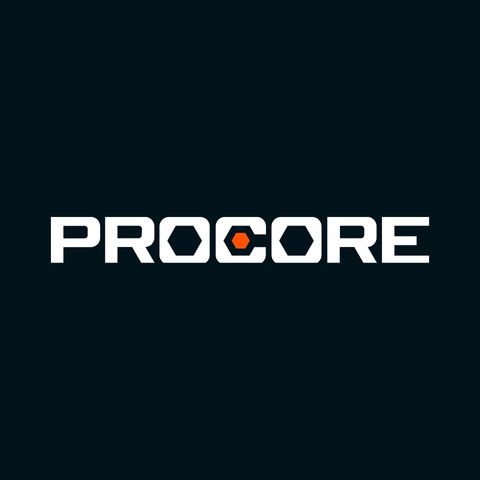 Procore |
|
|||||
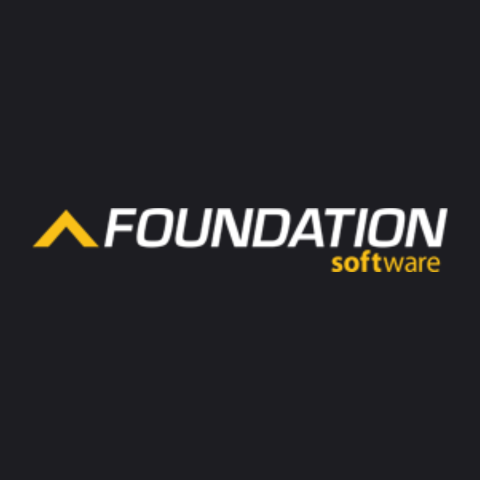 Foundation |
|
|||||
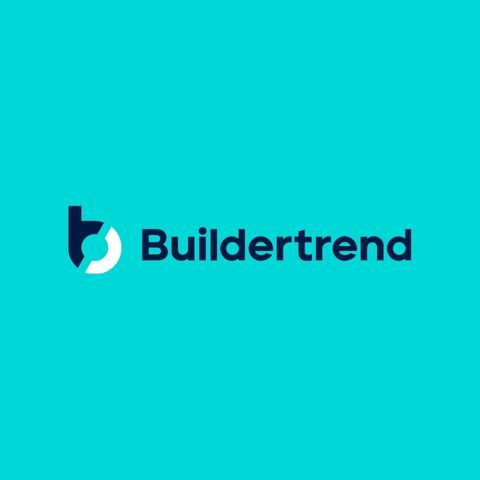 Buildertrend |
|
|||||
 CMiC |
|
|||||
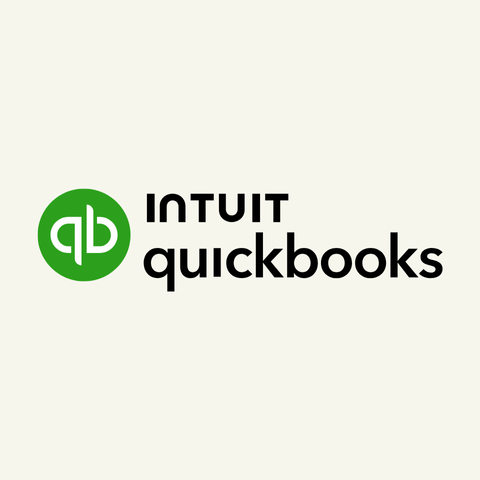 Quickbooks |
|
|||||
 Freshbooks |
|
|||||
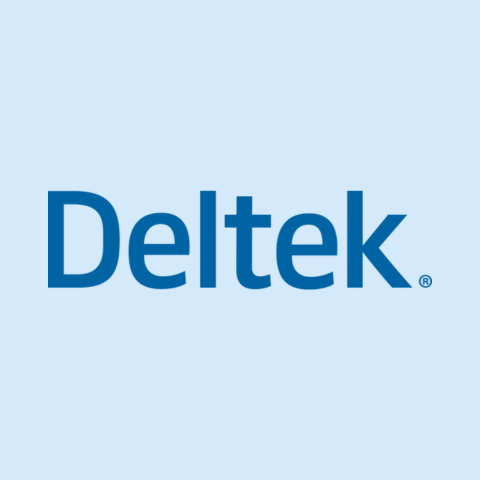 Deltek |
|
|||||
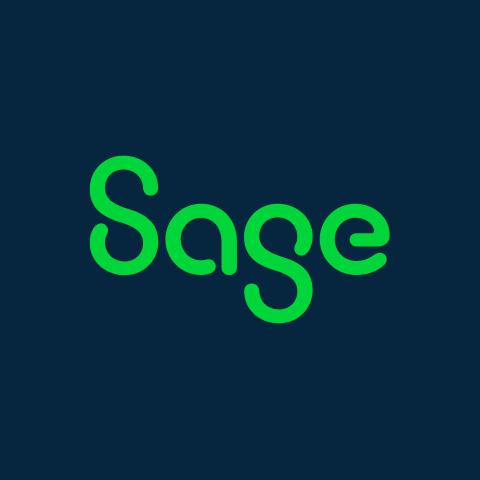 Sage |
|
|||||
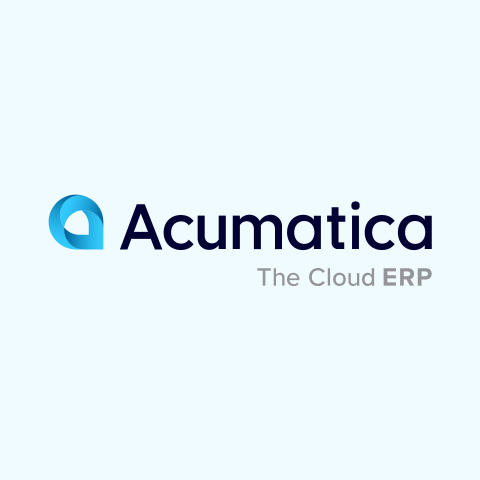 Acumatica |
|
What
is
construction
accounting
software?
A
construction
accounting
software
is
a
specialized
tool
for
managing
the
financial
needs
of
the
construction
industry.
It
helps
track
project
costs,
manage
budgets,
process
payroll,
handle
invoices,
and
ensure
compliance
with
industry
regulations.
Learn
these
basic
accounting
terms
to
have
a
better
understanding
of
construction
accounting
software,
to
know
how
it
can
help,
and
adapt
to
the
needs
of
your
company.
Features
of
construction
accounting
software
One
of
the
main
features
of
a
construction
accounting
software
is
project
management
integration,
which
coordinates
financial
data
with
project
timelines.
Budgeting
and
forecasting
features
also
enable
companies
to
plan
and
predict
future
financial
needs,
ensuring
projects
stay
on
schedule
and
within
budget.
Job
costing
is
crucial
for
tracking
expenses
related
to
specific
projects,
while
payroll
management
simplifies
paying
employees,
managing
benefits,
and
ensuring
compliance
with
labor
legislation.
Construction
accounting
software
also
include
accounts
payable
and
receivable
functions
to
ensure
timely
payments
and
accurate
invoicing.
Its
financial
reporting
tools
provide
detailed
insights,
giving
companies
a
clear
view
of
their
financial
situation.
In
today’s
fast-paced
industry,
mobile
access
is
increasingly
important,
allowing
users
to
manage
finances
on
the
go
and
stay
updated
in
real
time.
Customer
and
vendor
management
tools
help
maintain
strong
relationships
by
efficiently
organizing
contact
data
and
transaction
history.
Using
construction
accounting
software
supports
compliance
with
industry
regulations
through
compliance
and
tax
management
tools,
which
help
mitigate
the
risk
of
legal
issues.
Document
management
capabilities
enhance
organization
and
efficiency
by
simplifying
the
storage
and
retrieval
of
crucial
documents.
Real-time
data
and
analytics
offer
instant
access
to
essential
financial
information,
facilitating
swift
decision-making.
Bid
management
features
streamline
the
creation
and
management
of
bids,
thereby
increasing
the
likelihood
of
securing
projects.
What
are
the
benefits
of
construction
accounting
software?
Improved
financial
management:
With
accurate
job
costing
and
enhanced
budgeting
and
forecasting
capabilities,
the
software
enables
precise
tracking
of
project
expenses
and
future
financial
planning.
This,
in
turn,
ensures
that
projects
remain
within
budget
and
profitability
is
maximized.
Integration:
the
software’s
ability
to
integrate
with
project
management
tools
and
automate
repetitive
tasks
streamlines
operations,
reducing
manual
workload.
This
integration
facilitates
real-time
updates,
ensuring
that
all
team
members
stay
informed
and
coordinated.
Enhanced
collaboration
is
a
key
benefit,
as
the
software
allows
various
stakeholders—including
contractors,
builders,
and
subcontractors—to
access
and
update
project
information.
Regulatory
compliance
is
simplified
through
a
construction
software,
which
helps
businesses
adhere
to
industry
regulations
and
tax
laws,
thereby
mitigating
the
risk
of
legal
issues.
Cost
savings
are
achieved
through
process
automation
and
reduced
manual
errors,
enhancing
overall
operational
efficiency.
Better
decision-making:
The
software
supports
better
financial
forecasting
by
providing
detailed
financial
data
and
predictive
analytics.
This
capability
empowers
teams
in
the
construction
business
to
make
strategic
decisions
that
enhance
project
outcomes
and
profitability.
A
better
risk
management
is
realized
through
comprehensive
monitoring
and
analysis
of
financial
and
project
data.
In
essence,
construction
accounting
software
equips
contractors
and
builders
with
the
tools
necessary
to
manage
their
finances
more
effectively
and
achieve
greater
success
in
their
projects.
How
to
choose
the
best
construction
accounting
software?
Job
costing
is
a
foundational
element
of
construction
accounting
software,
since
it’s
important
to
ensure
that
every
dollar
spent
is
accounted
for.
It’s
essential
to
choose
a
solution
that
offers
accurate
job
costing
features,
enabling
you
to
track
expenses
down
to
specific
projects
or
phases.
Equally
important
is
project
management
integration.
The
software
should
easily
connect
with
your
project
management
tools,
allowing
for
real-time
data
synchronization.
This
integration
enhances
coordination
between
financial
and
operational
teams.
Consider
how
the
software
handles
budget
and
completion
analysis.
Effective
software
should
include
robust
budgeting
tools
for
precise
financial
planning
and
monitoring,
as
well
as
completion
analysis
features
to
assess
project
progress
against
the
budget.
This
helps
you
identify
and
address
any
financial
discrepancies
early
on.
Change
order
tracking
is
another
critical
feature.
The
software
of
your
choosing
should
efficiently
manage
modifications
to
project
scopes.
This
capability
helps
maintain
financial
accuracy
as
project
requirements
evolve.
Additionally,
evaluate
the
software’s
integration
capabilities.
It
should
integrate
with
other
essential
systems,
such
as
CRM,
ERP,
and
payroll
systems,
to
create
an
efficient
financial
ecosystem.
This
integration
streamlines
processes
and
minimizes
the
need
for
manual
data
entry,
improving
overall
efficiency.
Another
vital
aspect
to
consider
is
the
quality
of
customer
support.
Reliable
and
responsive
support
is
crucial
for
resolving
issues
and
ensuring
smooth
software
operation.
Lastly,
assess
the
overall
costing
of
the
software.
Consider
both
the
initial
investment
and
ongoing
costs
to
ensure
that
the
solution
fits
within
your
budget.
Which
accounting
method
is
best
for
a
construction
company?
For
construction
companies,
the
percentage-of-completion
method
is
often
considered
the
most
effective
accounting
approach.
This
method
allows
the
recognition
of
revenues
and
expenses
in
accordance
with
the
progress
of
a
project.
This
provides
a
more
accurate
reflection
of
financial
performance
over
the
life
cycle
of
the
project,
specially
of
those
that
are
long-term.
It
is
important
to
know
these
cost
accounting
terms
so
that
you
can
use
them
to
your
advantage.
With
this,
you
can
more
effectively
track
revenues,
manage
budgets
and
forecast
future
profits.
As
a
result,
it
helps
to
maintain
a
clear
view
of
financial
health
as
projects
progress.
How
does
construction
accounting
software
improve
productivity?
The
use
of
construction
accounting
software
helps
improve
productivity
by
automating
financial
tasks
such
as
invoicing,
payroll
and
expense
tracking,
reducing
manual
data
entry
and
errors.
It
also
provides
access
to
real-time
data
for
quick
decision-making
and
integrates
project
management
functions
for
tracking
timelines
and
resources.
How
do
construction
companies
track
expenses?
Construction
companies
can
track
expenditures
through
the
budget
and
completion
analysis
method.
With
this
method,
they
can
compare
actual
costs
incurred
to
budgeted
amounts
throughout
the
project
life
cycle.
An
important
thing
to
know
is
that
by
continuously
monitoring
and
analyzing
these
financial
metrics,
it
is
possible
to
identify
variances,
manage
costs
more
effectively
and
ensure
that
projects
stay
within
budget.
Limitations
of
construction
accounting
software
A
major
limitation
of
construction
accounting
software
is
the
complexity
of
the
software
itself.
Advanced
features
and
functionality
can
create
a
steep
learning
curve,
requiring
a
lot
of
time
and
training
to
master.
In
addition,
the
cost
of
high-quality
construction
accounting
software
can
be
prohibitive,
especially
for
smaller
firms
with
limited
budgets.
Some
software
solutions
may
not
offer
the
flexibility
to
tailor
the
system
to
the
unique
requirements
of
the
company.
So,
customization
option
is
another
major
hurdle.
Integration
issues
are
also
a
common
concern.
Difficulty
integrating
software
with
existing
systems,
such
as
CRM
or
ERP
platforms,
can
lead
to
data
silos
and
inefficiencies.
Finally,
localization
can
pose
challenges,
especially
for
companies
operating
in
multiple
regions
with
different
regulatory
requirements.
A
accounting
software
for
construction
that
lacks
robust
localization
capabilities
may
struggle
to
adapt
to
different
tax
laws,
currency
formats
and
compliance
rules.
Which
construction
management
software
offers
communication
platforms
or
CRM?
Buildertrend,
JobNimbus
and
Procore
offer
inbuilt
communication
platforms.
Acumatica
includes
CRM
features
as
part
of
its
construction
management
software.
Sage
Construction
easily
integrates
with
Sage
CRM.
